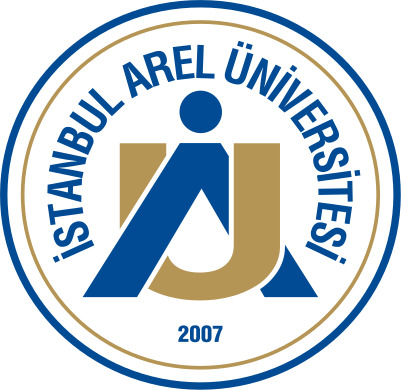Construction Technology
Overview
<!-- wp:paragraph --> <p><strong>Program Description</strong><br><strong>Construction Technology at Istanbul Arel University: Building the Foundations of Tomorrow’s Infrastructure</strong></p> <!-- /wp:paragraph --> <!-- wp:paragraph --> <p>The Construction Technology program at Istanbul Arel University is designed to provide students with the technical expertise and practical skills required to excel in the dynamic construction industry. This program combines the latest advancements in construction materials, techniques, and technology, offering students a comprehensive education in the planning, design, and execution of construction projects. Through a combination of theoretical knowledge and hands-on experience, students will learn how to manage construction processes, utilize cutting-edge construction technologies, and ensure the safety, sustainability, and efficiency of projects. The program equips graduates to work on a variety of construction projects, ranging from residential buildings to large-scale infrastructure developments.</p> <!-- /wp:paragraph --> <!-- wp:paragraph --> <p><strong>Program Mission and Vision</strong><br>The mission of the Construction Technology program at Istanbul Arel University is to develop skilled professionals who can contribute to the construction industry by applying modern techniques, technologies, and sustainable practices. The program aims to equip students with a deep understanding of construction processes, project management, and advanced construction tools. Its vision is to cultivate a new generation of construction experts who can innovate, lead, and drive the future of construction in a rapidly evolving global market.</p> <!-- /wp:paragraph --> <!-- wp:paragraph --> <p><strong>Curriculum Structure</strong><br>The Construction Technology program offers a well-rounded curriculum that blends foundational construction knowledge with advanced technological skills. Key areas of the curriculum include:</p> <!-- /wp:paragraph --> <!-- wp:paragraph --> <p><strong>Introduction to Construction Technology</strong>: This introductory course provides an overview of the construction industry, including the key stages of construction projects, types of construction, and the roles of different stakeholders. Students are introduced to the tools and technologies commonly used in construction, along with an understanding of construction terminology and practices.</p> <!-- /wp:paragraph --> <!-- wp:paragraph --> <p><strong>Building Materials and Construction Methods</strong>: Students study the various materials used in construction, including concrete, steel, wood, and masonry. They also learn about construction methods, techniques, and best practices for creating durable, safe, and sustainable buildings and structures.</p> <!-- /wp:paragraph --> <!-- wp:paragraph --> <p><strong>Construction Project Management</strong>: This course focuses on the principles of managing construction projects, including project planning, budgeting, scheduling, and quality control. Students learn about risk management, procurement, and coordination among different teams involved in construction projects.</p> <!-- /wp:paragraph --> <!-- wp:paragraph --> <p><strong>Structural Systems and Analysis</strong>: Students gain an understanding of the structural components of buildings and infrastructure, including foundations, beams, columns, and roofing systems. The course includes basic principles of structural analysis, helping students understand how forces are distributed across various structural elements.</p> <!-- /wp:paragraph --> <!-- wp:paragraph --> <p><strong>Construction Site Safety and Environmental Considerations</strong>: Safety is a critical aspect of the construction industry. This course teaches students the safety protocols and regulations governing construction sites. They also learn about the environmental impact of construction, with a focus on sustainable building practices and green construction methods.</p> <!-- /wp:paragraph --> <!-- wp:paragraph --> <p><strong>Surveying and Site Planning</strong>: This course introduces students to the basics of land surveying, site measurements, and site planning. Students learn how to read construction drawings, assess topographical conditions, and prepare construction sites for building projects.</p> <!-- /wp:paragraph --> <!-- wp:paragraph --> <p><strong>Building Information Modeling (BIM)</strong>: BIM is a key technology in modern construction, allowing for the digital representation of physical and functional characteristics of buildings. Students are introduced to BIM tools and software, learning how to create and manage 3D models for construction projects, and how to integrate BIM into project planning and management.</p> <!-- /wp:paragraph --> <!-- wp:paragraph --> <p><strong>Construction Technology and Innovation</strong>: This course focuses on the latest innovations in construction technology, such as prefabrication, 3D printing, robotics, and smart building systems. Students explore how these technologies are transforming the construction industry and improving efficiency, sustainability, and safety.</p> <!-- /wp:paragraph --> <!-- wp:paragraph --> <p><strong>Construction Law and Contracts</strong>: Students are introduced to the legal aspects of construction, including construction contracts, regulations, and compliance requirements. They learn about the rights and responsibilities of contractors, clients, and other stakeholders, as well as the dispute resolution mechanisms used in construction projects.</p> <!-- /wp:paragraph --> <!-- wp:paragraph --> <p><strong>Sustainable Construction Practices</strong>: This course emphasizes the importance of sustainability in construction. Students learn about energy-efficient building techniques, sustainable materials, and eco-friendly design principles that reduce the environmental impact of construction projects.</p> <!-- /wp:paragraph --> <!-- wp:paragraph --> <p><strong>Advanced Construction Techniques</strong>: Students explore advanced methods and technologies used in large-scale construction projects, such as high-rise buildings, infrastructure development, and transportation networks. The course focuses on the unique challenges of complex projects and how to overcome them through innovative solutions.</p> <!-- /wp:paragraph --> <!-- wp:paragraph --> <p><strong>Capstone Project and Internship</strong>: The program culminates in a capstone project and internship, where students apply the knowledge and skills they have gained throughout their studies to real-world construction projects. The internship provides hands-on experience in construction management, site operations, and project execution, while the capstone project allows students to work on a detailed, practical construction plan or study.</p> <!-- /wp:paragraph --> <!-- wp:paragraph --> <p><strong>State-of-the-Art Facilities and Labs</strong><br>Istanbul Arel University provides students with access to modern construction labs, equipment, and software, enabling them to simulate real-world construction processes and practice their technical skills. The university’s construction labs are equipped with the latest technology, including software for BIM, project management, and structural analysis.</p> <!-- /wp:paragraph --> <!-- wp:paragraph --> <p><strong>Emphasis on Practical Experience and Industry Collaboration</strong><br>The Construction Technology program places a strong emphasis on practical experience and collaboration with industry professionals. Students participate in internships and work on live construction projects, gaining valuable insights and skills in project management, site operations, and the use of construction technologies. The program also hosts guest lectures, workshops, and industry visits, giving students the opportunity to connect with professionals in the field.</p> <!-- /wp:paragraph --> <!-- wp:paragraph --> <p><strong>Career Opportunities</strong><br>Graduates of Istanbul Arel University’s Construction Technology program are prepared for a wide range of careers in the construction industry. Career opportunities include roles such as construction project manager, site supervisor, construction engineer, building materials specialist, BIM coordinator, and sustainability consultant. Graduates can work in various sectors, including residential, commercial, and industrial construction, as well as in infrastructure development and civil engineering projects.</p> <!-- /wp:paragraph --> <!-- wp:paragraph --> <p><strong>Shaping the Future of the Construction Industry</strong><br>The Construction Technology program at Istanbul Arel University equips students with the skills and knowledge to become leaders in the construction industry. By combining technical expertise with innovative practices, sustainability principles, and real-world experience, the program ensures that graduates are prepared to meet the challenges of the evolving construction landscape and contribute to the development of safe, efficient, and sustainable built environments.</p> <!-- /wp:paragraph -->
Program Description
The Construction Technology program at İstanbul Arel University offers a comprehensive curriculum designed to prepare students for successful careers in this dynamic field. The program combines theoretical knowledge with practical skills, ensuring graduates are ready for the challenges of the industry.
The program is taught by experienced faculty members who are leaders in their respective fields, providing students with insights into current industry practices and future trends.
Curriculum Highlights
- Advanced Research Methods: Learn cutting-edge research techniques and methodologies.
- Industry Analysis: Explore current industry trends and develop analytical skills.
- Leadership and Management: Develop essential leadership skills for managing teams and projects.
- Innovation and Entrepreneurship: Cultivate creative thinking and entrepreneurial mindset.
- Digital Transformation: Understand how technology is reshaping industries and businesses.
- Sustainable Development: Explore environmentally sustainable practices and their implementation.
- Global Markets: Study international market dynamics and global business operations.
- Technology Integration: Learn to leverage technology for improved business outcomes.
Requirements:
- Bachelor's degree (for Master's programs) or equivalent qualifications.
- Proven English language proficiency (IELTS 6.5+ or equivalent).
- Complete transcripts from previous education.
- A compelling letter of motivation explaining your interest in the program.
- Two letters of recommendation from academic or professional references.
- Valid passport with appropriate visa status or eligibility.
Benefits:
- World-class faculty with extensive industry experience.
- Modern campus facilities and cutting-edge learning environments.
- Strong industry partnerships providing networking opportunities.
- Internship opportunities with leading companies in the field.
- Comprehensive career services including job placement assistance.
- Access to a global alumni network for lifelong professional connections.
Begin your educational journey today.
Apply now and take the first step towards your future.






